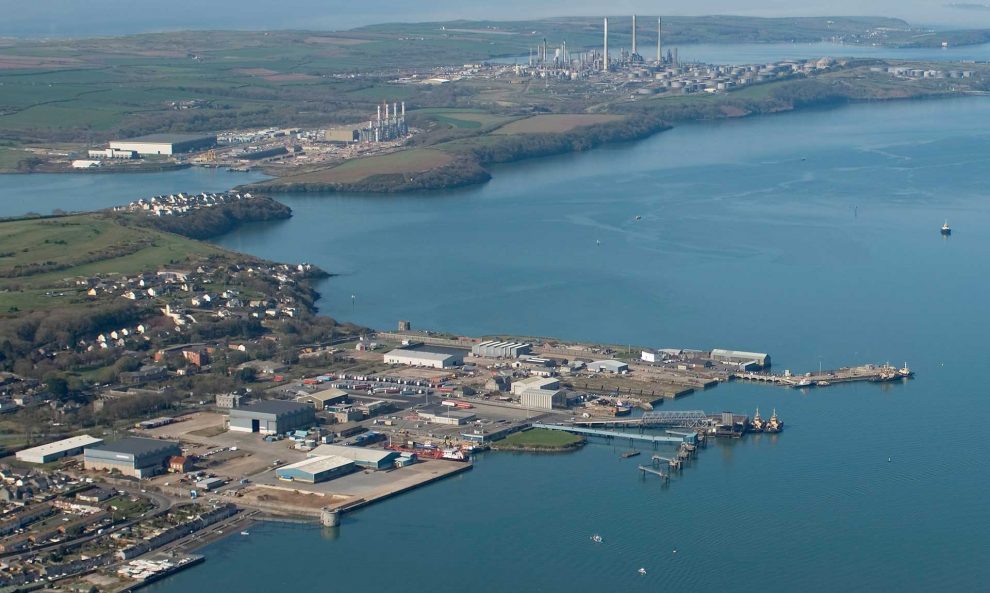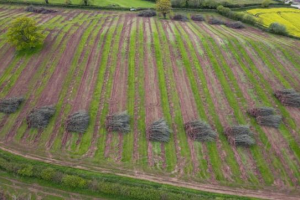ECONOMY Secretary, Ken Skates has announced an intention to streamline the operation of Wales’ eight Enterprise Zones while increasing their focus on delivering prosperity for Welsh communities.
During an appearance at the Economy, Infrastructure and Skills Committee, Ken Skates announced the conclusions of his review of the governance of Wales’ Enterprise Zones while stressing his commitment to the continuation of all eight of the zones.
Speaking after Committee, Ken Skates said: “I am very proud of the achievements and success of our Enterprise Zones and grateful for the hard work and commitment of the Chairs and Advisory Boards in driving their success.
“Collectively our Enterprise Zones supported over 10,700 jobs to the end of the last financial year at a cost per job of less than £6k per job, and whilst the pace of delivery has varied between the Zones, this very much reflects each Zone’s economic context and starting position.
“All eight Enterprise Zones have made significant progress, and are continuing to deliver value for money by laying the foundation for future prosperity and creating the right environment to support the development of sustainable job opportunities in communities right across Wales, both in the short and longer term.
“The changes I have outlined are about streamlining bureaucracy and utilising other governance structures where I believe that represents the most sensible way forward. They have also been made as part of a wider review of advisory architecture across my portfolio.
“The views of the Chairs of the Enterprise Zones have been invaluable in shaping my decisions.”
Mr Skates announced that four of the eight boards that advise the government on Wales’ enterprise zones are to be wound up this summer. The boards overseeing the zones in Cardiff, St Athan, Deeside and Ebbw Vale will cease to exist from July 31. But the zones themselves – designed to support business growth with some tax incentives – will continue to exist.
Boards in Port Talbot and West Wales will continue, while those for Snowdonia and Anglesey will merge.
Mr Skates also said more enterprise zones could be created, in places such as Wrexham.
Responding to Ken Skates’ comments, Welsh Conservative leader, Andrew RT Davies, said: “Labour’s enterprise zones have cost the Welsh taxpayer hundreds of millions of pounds – with very little to show for the money and Welsh workers still receiving the lowest average weekly wage in the UK.
“The Cabinet Secretary’s comments indicate the Welsh Government might well continue down the road of Enterprise Zones, potentially throwing good money after bad.
“The approach outlined by Ken Skates seems haphazard at best, utterly shambolic at worst and certainly does not fit into the rhetoric of the Welsh Government’s recently launched economic action plan. Some new enterprise zones are to be created, some boards are to merge, and some wound up altogether!
“The Welsh Government must now make clear its long term plans for the zones and ensure that any future funding produces tangible economic results for Wales and our local communities.”
Wales’ eight Enterprise Zones were first launched in April 2012. The then Cabinet Secretary for Business, Edwina Hart, stated that “My aim in developing enterprise zones is to strengthen the competitiveness of the Welsh economy.”
Since the creation of the zones, £221 million of public funds have been allocated to support that policy initiative. Despite huge injections of public funds however, serious questions remain as to whether the Enterprise Zones have delivered their key objectives:
In the Ebbw Vale Enterprise Zone £94.6 million has been spent to create, safeguard or assist just 390 jobs (at a cost of around £250,000 per job).
In the Snowdonia Enterprise Zone £2.1 million has been spent to create, safeguarded or assist just 20 jobs (at a cost of £108,333 a job)
A further issue is the question of whether or not Enterprise Zones have come close to fulfilling their original intent.
Enterprise Zones were set up by the Welsh Government to ‘grow the local economy and provide new jobs’.
However, while Mr Skates claims that over 10,700 jobs were ‘supported’, Welsh Government figures suggest that, in practice, the zones have not been used to create new jobs.
The average cost of each new job created by Enterprise Zones has been £74,000
The St Athan Enterprise Zone was supposed to deliver 10,000 jobs by 2025 – but in five years the number of new jobs actually created was 137.
In Ebbw Vale, £94 million has been spent on just 175 new jobs, the equivalent of £500,000 a head.
In Snowdonia, £2.1 million has been spent on creating 6 new jobs.
Looking at the figures revealed for the Haven Enterprise Zone, reveals that 356 jobs have been created, 561.5 safeguarded, and 196 assisted: 1,113.5 jobs.
Using a crude measure – the total number of jobs involved came at a cost of under £8,500 each. However, under one third of those jobs are the sort of new jobs the Enterprise Zone was supposed to create.

















Add Comment